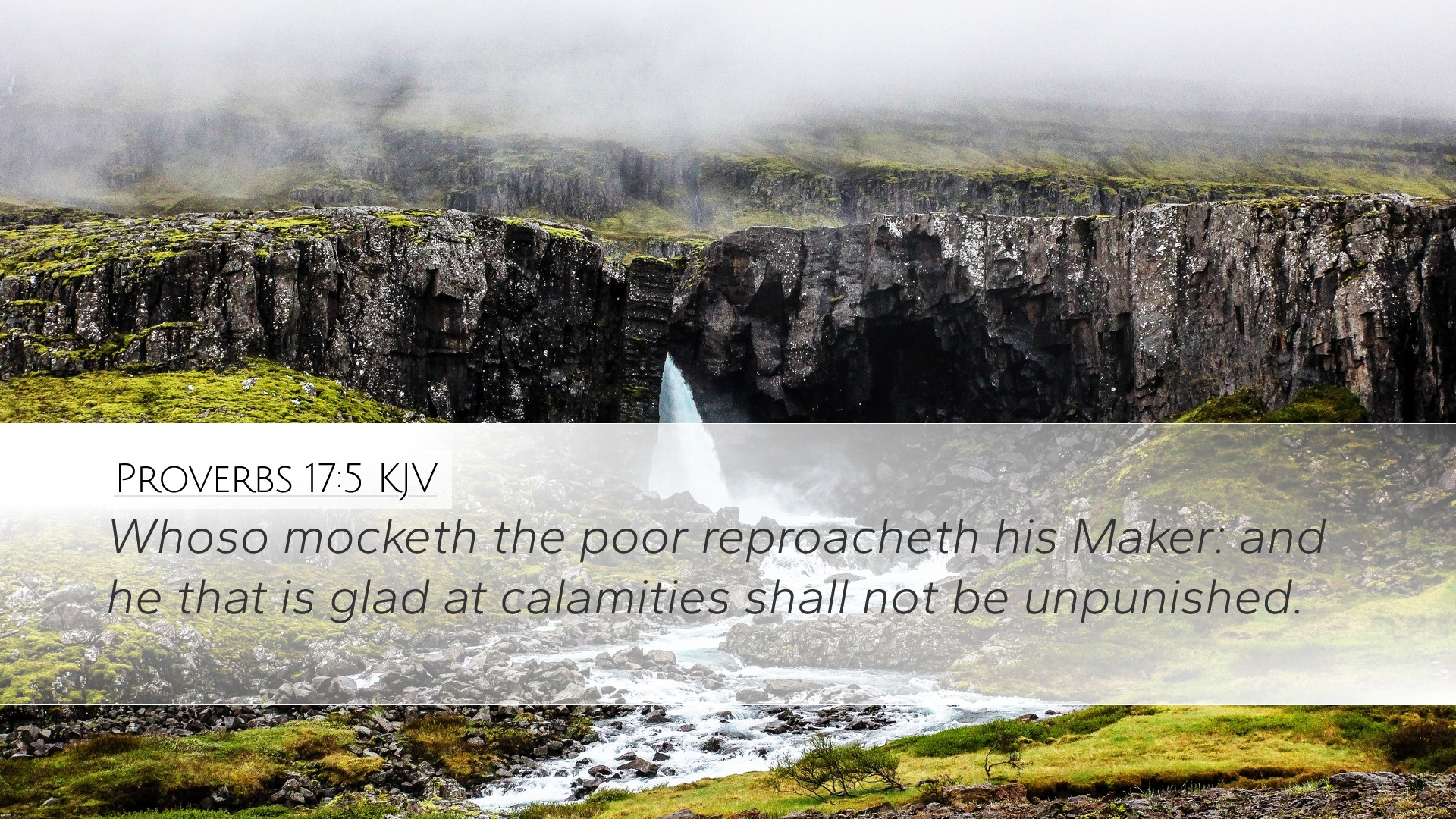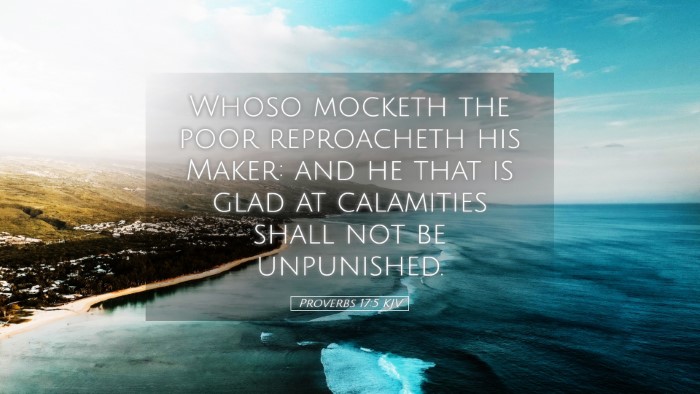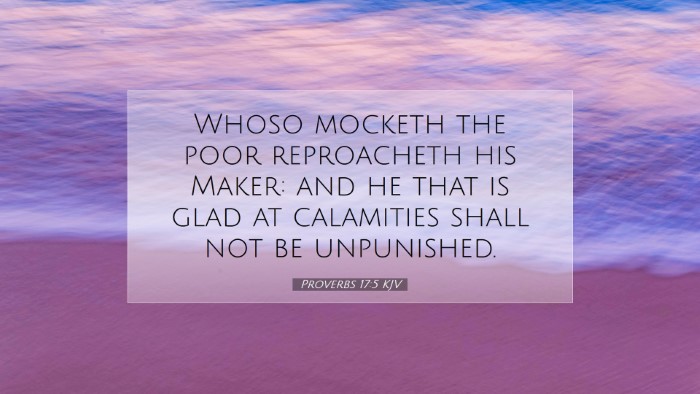Commentary on Proverbs 17:5
Verse: "He who mocks the poor reproaches his Maker; he who is glad at calamity will not go unpunished."
Introduction
This verse encapsulates profound moral principles regarding our treatment of the vulnerable and our responses to calamity. The insights drawn from various public domain commentaries provide a rich tapestry of theological reflection that can aid pastors, students, theologians, and Bible scholars in their study and application of this scripture.
Understanding Mockery and Its Consequences
The first part of this verse addresses the attitude of mocking the poor. Matthew Henry notes that such mockery is not merely a social sin but fundamentally a reproach against God, the Maker of all individuals, including the poor. To belittle those in poverty is to insult their Creator, echoing the sentiment expressed in Genesis 1:27, where all are made in the image of God.
Adam Clarke expands this idea by emphasizing that the act of mocking demonstrates a lack of understanding and compassion. It reveals the mocker's moral failings and disregard for the dignity of human life, as each person holds intrinsic value regardless of their socio-economic status.
God's Justice and Sociological Implications
The verse implies that there are divine consequences for those who find joy in the suffering of others. Albert Barnes highlights the notion that happiness derived from another's misfortune reveals a corrupt heart and a lack of true righteousness. This carries sociological implications: communities built on compassion and empathy toward the downtrodden are favored by God.
- Empathy over Mockery: The call here is to cultivate empathy. Compassion leads to community strength, while mockery breeds division.
- Theological Reflection: The believer is urged to reflect on their attitudes toward all individuals, especially those who are less fortunate.
The Character of God and Our Response
By reproaching the poor, the mocker distorts the nature of God. Matthew Henry suggests that acknowledging God as Creator leads to a profound respect for all humanity. This promotes a culture of reverence, where societies uplift the weak rather than belittle them.
Albert Barnes reminds us of God's justice; those who find pleasure in evil are warned they will not escape the repercussions. In this context, the phrase "he who is glad at calamity" indicates the dangerous psychology of delighting in the sorrow of others.
Personal Reflection and Application
Each reader is invited to engage in personal reflection regarding their attitudes and actions. As we study this verse, several questions emerge:
- How do I respond to those who are struggling or suffering?
- Am I ever tempted to mock or belittle others based on their circumstances?
Adam Clarke emphasizes that self-examination is necessary for spiritual growth. A heart aligned with God's will views the poor with compassion and seeks to be a source of support rather than scorn.
Conclusion
Proverbs 17:5 serves not only as a moral directive but as a theological assertion of human dignity and God's justice. In the unfolding narrative of the Gospel, we see how these truths find their ultimate expression in Christ, who identifies with the poor and calls His followers to do the same. The challenge remains: will we heed this wisdom and cultivate a heart of compassion, or will we fall into the temptations of mockery and disdain? As stewards of God's grace, let us choose wisely.


